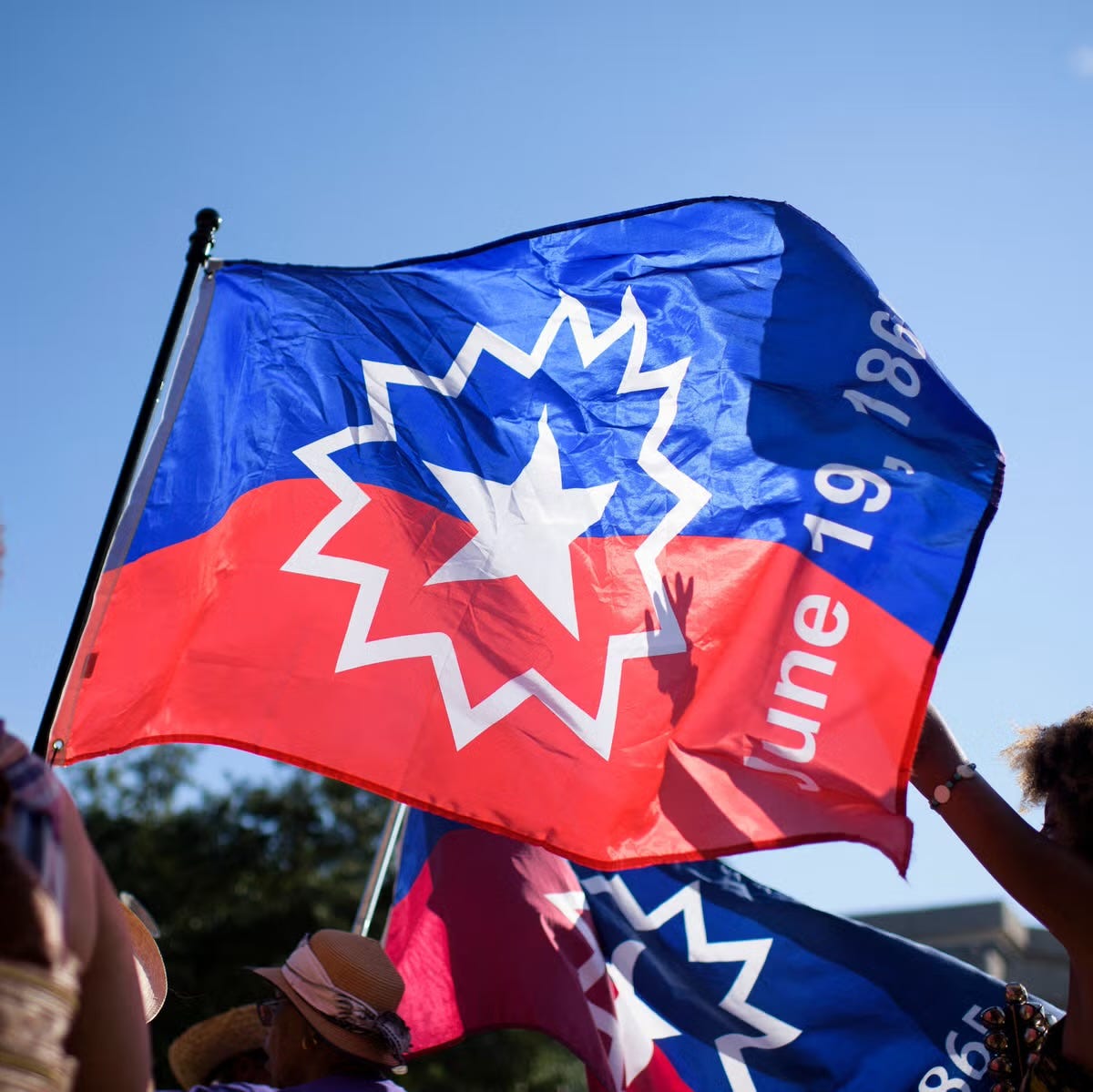Why is Juneteenth met with hatred?
A brief overview of why Juneteenth continues to face backlash
Every year, as Juneteenth gains wider recognition as a federal holiday, a familiar controversy surfaces: resistance from some Americans who question why it should be celebrated at all. At its core, Juneteenth marks a fundamental moment in American history—the end of slavery in the United States. When Union soldiers arrived in Galveston, Texas, on June 19, 1865, and enforced the Emancipation Proclamation, they delivered freedom to the last enslaved people in the Confederacy. Yet, despite its profound historical significance, Juneteenth continues to face backlash that reflects deep-rooted discomfort with acknowledging the full scope of America’s past.
One of the most common arguments from those who protest Juneteenth is the assertion that “we already have Independence Day.” To them, July 4th represents freedom for all Americans, and they perceive Juneteenth as redundant or divisive. But this perspective overlooks a painful truth: when the Declaration of Independence was signed in 1776, freedom was extended only to a select portion of the population—primarily white, landowning men. Enslaved Africans and their descendants remained in bondage for nearly a century more. For millions of Black Americans, true independence did not come on July 4th, but much later, on days like Juneteenth.
[Read more about July 4th and what it means for Puerto Ricans]
The resistance to Juneteenth also exposes an ongoing struggle within American society to fully confront the legacy of slavery. Many prefer a sanitized version of history that celebrates American exceptionalism without acknowledging the injustices that made such progress possible for some while denying it to others. Juneteenth forces a confrontation with the uncomfortable reality that American freedom was not universal. It reminds us that the nation’s founding principles of liberty and equality were, for generations, selectively applied.
Congressman McGovern speaking at the Juneteenth Flag Raising in Worcester, MA
There is also a political undercurrent to the opposition.
In recent years, discussions about race, systemic inequality, and historical truth have become highly polarized. For some, acknowledging Juneteenth feels like an admission that systemic racism still shapes American life—a reality they are unwilling to confront or accept. Recognizing Juneteenth doesn’t erase July 4th; it broadens the narrative to include all Americans’ fight for freedom. But for those clinging to a narrow, exclusionary view of patriotism, this expansion is seen as a threat.
Ironically, celebrating Juneteenth aligns with the very values Americans claim to honor on July 4th: freedom, justice, and the triumph of human rights over oppression. Just as July 4th commemorates independence from British tyranny, Juneteenth honors the end of American slavery—a system far more brutal and dehumanizing than taxation without representation. Both holidays celebrate liberation, yet one is met with pride while the other is too often met with resistance, revealing whose freedom has historically been prioritized.
In truth, acknowledging Juneteenth strengthens the American story. It does not diminish July 4th but completes it, reminding us that the journey toward true freedom has been uneven and ongoing. Celebrating Juneteenth invites all Americans to reckon honestly with the nation’s past, honor the resilience of Black Americans, and recommit to the promise of liberty and justice for all. If we can celebrate freedom from British rule, surely we can also celebrate freedom from slavery.
I’d love to hear from you…



